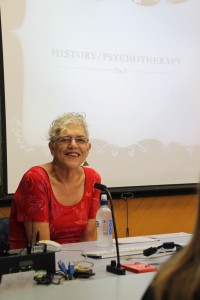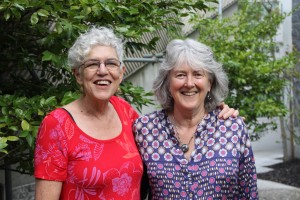History, Psychotherapy, Families and Mental Illness
Posted on by Angela Wanhalla
These topics were all covered by Associate Professor Sally Swartz (University of Cape Town) in two talks at the University of Otago on February 18th. Sally is a clinical psychologist and directs the Child Guidance Clinic at her university, teaches in the Department of Psychology, and combines these roles with an interest in history. She has published extensively on colonial asylums, mobility and mental illness in South Africa. Her latest book is Homeless Wanderers: Movement and Mental Illness in the Cape Colony in the late nineteenth century (UCT Press, 2015).
While in Dunedin Sally gave a brilliant workshop, The Archive and the Person: History and Psychotherapy, reflecting on the intersections between her two areas of expertise. She discussed the various ways in which her work as a clinical psychologist influences and shapes the way she intervenes in and reads colonial archives, particularly asylum case files. She explained how psychotherapy and history can be brought together in meaningful ways, particularly in relation to interpreting and understanding the embodied experiences of patients and families.
Sally also gave a public lecture entitled Families, Emotion and Attachment: Insights from the Past to the Present, in which she discussed how families kept their links, or didn’t, with their relatives in mental institutions. Experiences varied, but South Africa’s Jewish community, in particular, was one group that actively supported each other in times of family breakdown and stress. Those who lacked family support were less fortunate. From both these talks, Sally demonstrated that some aspects of mental health have not changed, notably the parsimonious official funding for psychiatric health services. Medical knowledge, though, has advanced immeasurably.
CRoCC was pleased to host Sally, and thanks Barbara Brookes for inviting her to Dunedin.
Posted in Public Lecture, Research Seminar | Tagged attachment, colonial asylums, emotion, family, mental health, psychology



